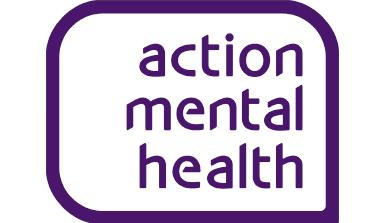Parenting in a pandemic – tips from Action Mental Health
Mental HealthParenting in a pandemic presents mums, dads and carers with a unique set of pressures rarely experienced before in global history.
For those parents who found it difficult entering the first lockdown last March, the return to strict restrictions on our movements will, for many mark a return to the fear, devastation and uncertainty they felt last time.
Lockdown at home can make it hard for families to keep a sense of calm. It’s therefore paramount to help your child feel safe and secure by ensuring they maintain a routine as much as possible. By making sure there is daily structure you can help them manage expectations, emotions and build resilience in them.
Address children’s fearsChildren rely on their parents or carers’ cues to feel safe, both physically and emotionally. By providing reassurance to children that you are there for them, you can equip them with the confidence that we will all get through this. This can be achieved through a number of ways:
- Be honest and answers questions about the pandemic in an age appropriate way. Talk with your child about the frightening news they hear. It’s okay to say people are getting sick, but remind them to follow safety steps: wash your hands, wear a mask and stay at home. All this will help the family and others stay healthy.
- Recognise your child’s feelings. Calmly say, for example: “I can see that you are disappointed not going back to school. What are other ways we can have fun with your friends?”
- Keep in touch with family and friends. Children can worry about grandparents living alone or family friends, so connections like video chats can help a little, though this method is not always appropriate for younger children.
As part of AMH’s vast toolbox of mental health support for young people, as promoted in its pioneering Healthy Me programme for primary school children, there are many steps that can be taken to help children – and their parents – to negotiate this difficult time. They include practical, self-care strategies, among them:
- Finger breathing. This type of breathing process helps to calm children when they are feeling stress.
- Fill a self-soothe box. Fill a box with items that help you relax or inspire positive memories and happy feelings. Whether it’s a treasured photograph, a seashell from a memorable visit to the seaside with a loved one, or something tactile to hold on to in times of anxiety, it’s up to you.
- Create a worry box. Encourage children to talk about their worries and fears, and support them by helping to write them down and tuck them away. This can help them to limit the time they spend worrying about things they can’t control.
As you help to support your children, parents and carers must not ignore their own needs. Many will be feeling the strain of home-schooling while carrying on their own job, working from home. Help yourself from becoming overwhelmed by embracing the tips in this useful guide.
Parents can also help themselves – and their children – by embracing the principles of Five Ways to Well-Being. Why not choose activities within the key points, to adopt as a family and support each other. Find out more.

























































